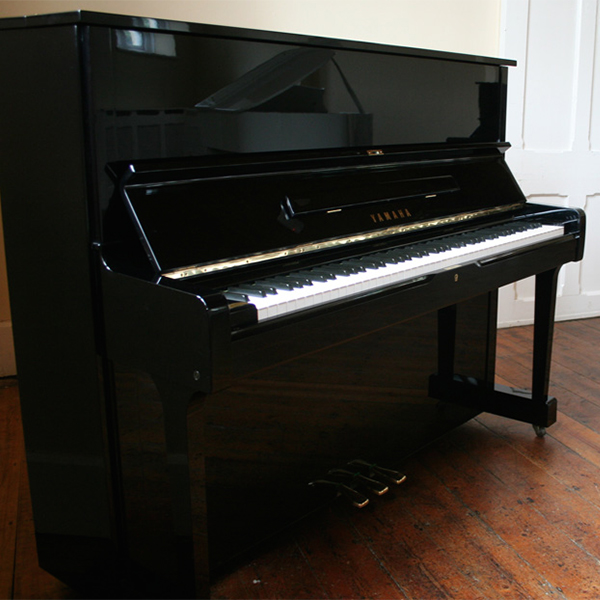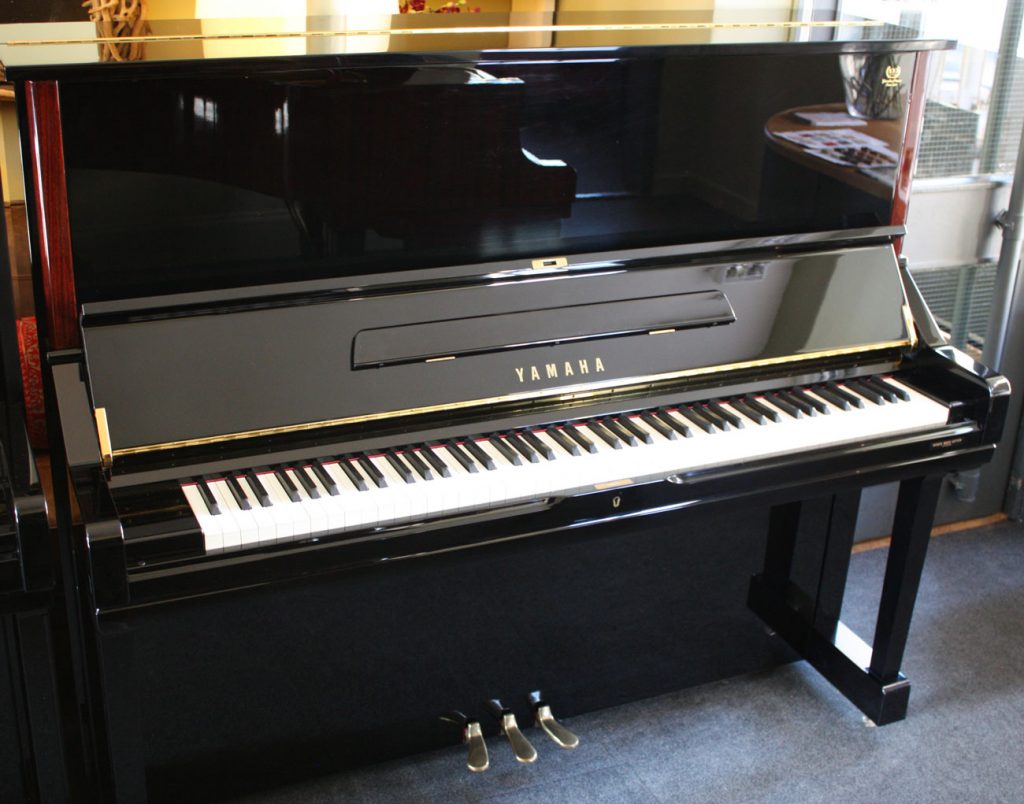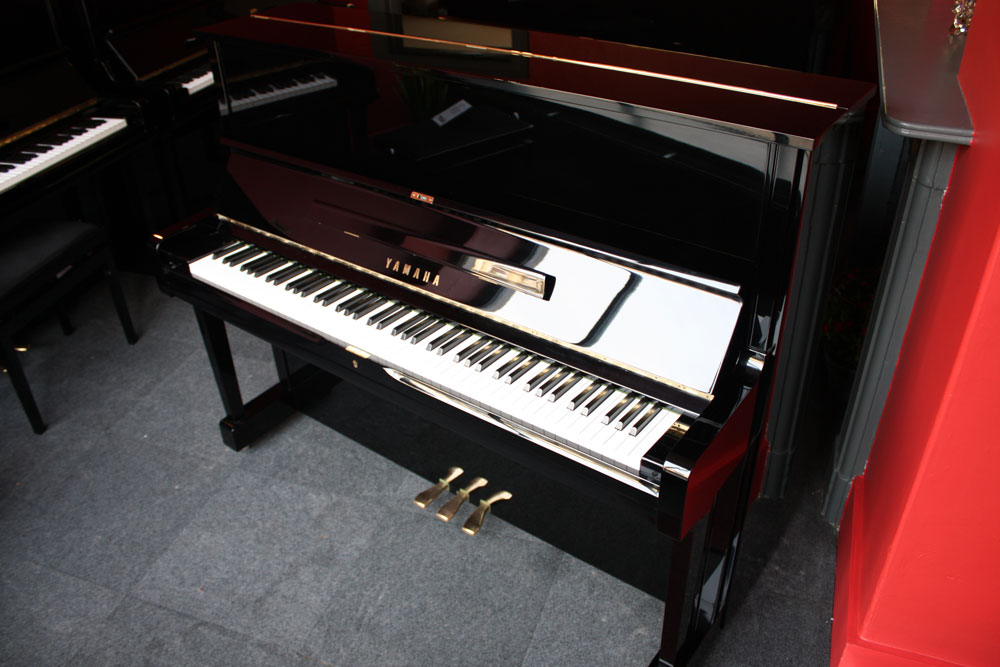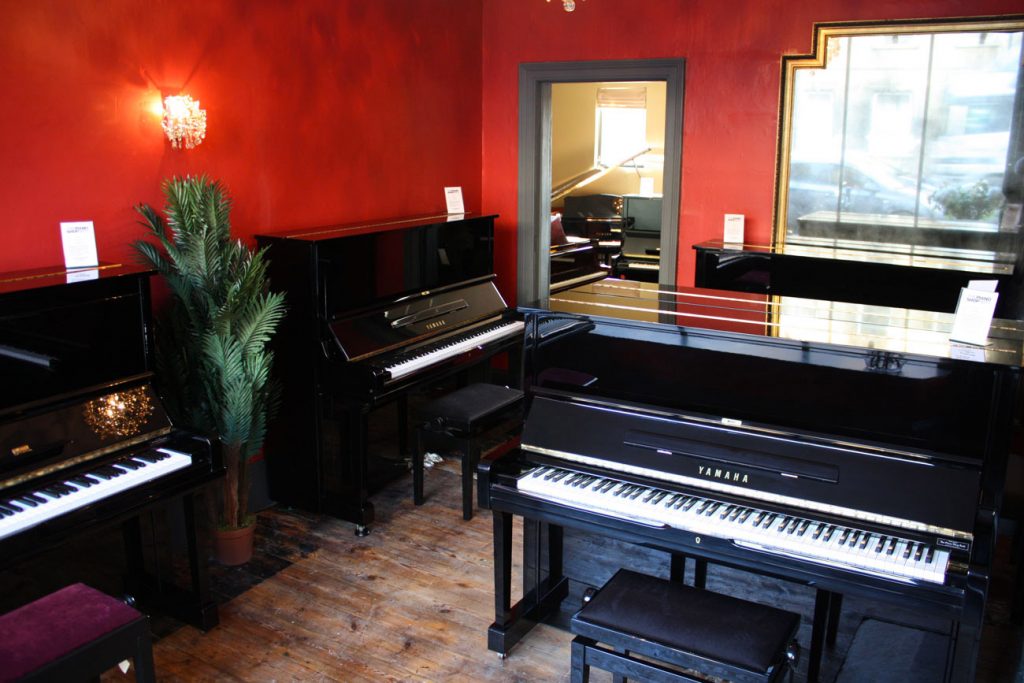One of the most popular and well regarded piano manufacturers in the world is Yamaha Pianos. Many people looking to buy a piano consider Yamaha as a serious option for them. In our showroom there is always have a good selection of Yamahas in stock, representing a wide range of choice for our customers. We have been helping people with their piano related enquiries for over twenty years now and have realised there is a need for some reliable and accessible information with regards to the pre owned Yamaha U1 and U3 upright pianos. In order to help make choosing your Yamaha piano as straightforward and enjoyable as possible we have compiled some of the information we know to be most useful for customers. We hope you find this enhances your confidence in yourself to make an informed choice about pre owned Yamaha Pianos, and would welcome any comments, suggestions or feedback.


What Makes Yamaha Pianos So Popular?
The Yamaha U1 and U3 range are very well made pianos that are built to high standards by Yamaha technicians in their Japanese factories. The pre-owned U1s and U3s are an attractive option for many people because it is possible to get a very high quality, good as new upright piano, for a very reasonable price. A piano that has excellent build quality, like the Yamaha U1s and U3s can easily last a lifetime, if well cared for. The Yamaha uprights are continually popular amongst all sectors of the piano buying public, from beginners to composers to teachers to professional musicians because they are so reliably rewarding to play and care for. Larry Fine (The Piano Book, p.154, 2001) describes why they remain a favoured brand, even amongst piano technicians, who describe them as great pianos to tune, play and listen to;
‘Technicians continue to be enthusiastic about servicing Yamaha verticals, especially the uprights, which are considered to be rather spectacular pianos. The U1 is still considered by many to be one of the best values among pianos’.
It is fortunate for us that the Japanese have a cultural disinclination to buy second hand goods, this means that there are more of these instruments available in the UK market. Do make sure you get a warranty with your new piano, a reputable piano dealer will always provide you with a warranty alongside your piano purchase.
How Do I know the Age of a Yamaha Piano?
To find out the age of a Yamaha lift up the top of the cabinet and look at the serial number on the back right hand side, this number will correspond to a year of manufacture. A comprehensive list of Yamaha serial numbers.
Was there a ‘Golden Age’ of Yamaha piano production?
Some dealers may make this claim, depending on the age of the piano they are trying to sell you at the time. This is entirely a matter of personal opinion, completely subjective and not based on any fact based evidence. If there was any one true ‘golden age’ of piano production it was at the start of the last century when the famous manufacturers like Steinway, Broadwood and Bluthner were producing some incredibly high quality pianos and the piano was a staple household item. Obviously some of the Yamahas from the 60s and 70s are now going to display some age related deterioration, which affects all pianos. However, claiming there was a golden decade of Yamaha piano production is not very helpful for customers who want to make an informed choice about their piano purchase because it neglects to mention there are a number of variables that influence the present condition of pre owned pianos. For example, where the piano has been previously used, how well it has been cared for and how well it is being looked after by the dealer you are buying from. These are all factors that will influence the condition of a pre-owned Yamaha, not simply the year it was manufactured. Every single Yamaha piano is slightly different, so to discount a pre owned piano based on the year it was produced or similarly blindly trust another one because it was built in a supposedly favoured decade is to take a wrong turn at the very beginning of your piano buying journey. One piano technician from the piano world forums has the following advice;
‘Pay no attention to the Golden Age stuff, unless you are some sort of piano historian and collector which of course you are not…The fact is that whatever someone says or writes about any piano, you will easily find the opposite view if you look hard enough’
And here is what the website ‘my piano friends’ has to say about the golden era myth
‘There are really no golden years as such. Yamaha continues building pianos and they are always being upgraded and each upgrade is better. Prior to 1970 yamaha had a lot of problems with seasoning wood for other climates. After about 1970-71 or so, all of the pianos were better. Better for yamaha mostly means all their pianos are good,in the u1, and u3 models’
In conclusion, please be mindful that the ‘golden era’ notion is more of a romantic and subjective idea than reliable fact and each pre owned Yamaha should be judged on its individual merits.






Yamaha U1 or U3?
Both models are produced to the same high standards in the Yamaha factory in Hamamatsu. In deciding between the two models the questions you may wish to consider to help you reach your decision are; What is my Budget? and How much Space do I have? Typically, the U3s are slightly dearer than the U1s and also look more imposing than the U1s as they measure 10cms higher. The bigger dimensions of the U3 allow for longer strings and thus a bigger sound. If you have flexibility in terms of space and budget you will want to consider both options because they are both excellent models (and you just can never quite know which piano will win you over in the end).
The best way to decide between the U1 and U3 is to visit a dealer and try them yourself. If you are just a beginner then someone in the showroom ought to be able to play the pianos for you and talk you through the differences. Personal preference in terms of tone and touch is so important when choosing a piano, even more so when buying a pre owned Yamaha because they are all slightly different. There is a subtlety and nuance which only you can ultimately choose between. In ‘The Piano Book’ Keith Jarrett has the following words of caution;
‘don’t think someone else will make the right choice for you. Not even pianists can choose pianos for other pianists. Attempts to do so have failed many times’

